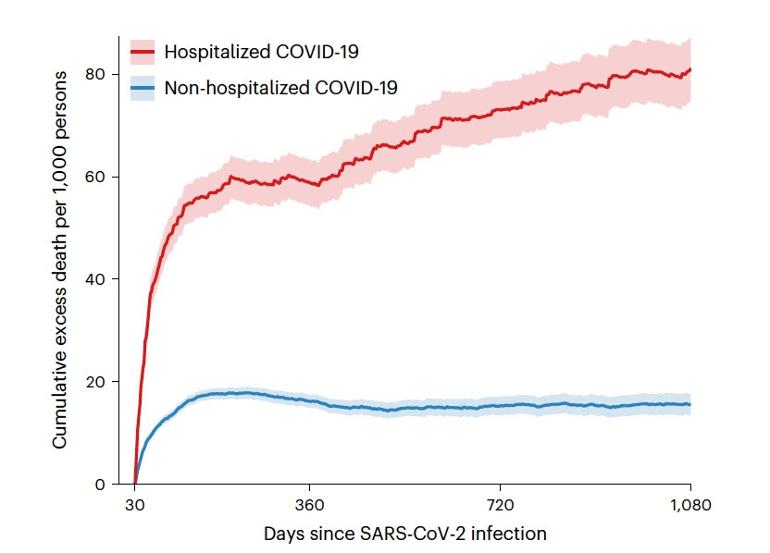This long and informative article erictopol.substack.com/p/lo... co-presented by Eric Topol and Ziyad Al-Aly, majors on two new studies on health outcomes for large numbers of early COVID-19 patients who were followed up for three years.
The VA study in > 135,000 people showed that major adverse outcomes, including death [figure above], multi-system sequelae, and disability, were persistent at 3-year follow up in the people who initially required hospitalization... In contrast, the people with mild to moderate Covid not hospitalized had evidence of small residual risk nature.com/articles/s41591-...
Among nearly 32,000 early COVID-19 patients, the Comegen study found an increasing incidence of major cardiovascular and cerebrovascular events over the three years of follow-up, in comparison with control subjects academic.oup.com/cardiovasc...
Neurologial aspects of Long Covid are discussed with reference to a series of studies and review articles. Topol and Al-Aly emphasise that SARS-COV2 infection is a risk factor for Alzheimer's disease in addition to brain inflammation and cognitive symptoms.
Finally, We are starting to see a summer wavelet of Covid in the United States, as reflected by a small bump in wastewater levels and emergency department visits, influenced by the FLiRT variants KP.2 and KP.3, more immune-evasive than the prior dominant JN.1 variant... The toll of the FLiRT variants for sharp rise of infections In Singapore, New Zealand and Australia should be kept in mind, since we can’t foretell what will happen here [the USA] in the weeks ahead (or track it well)...
In June, the FDA Advisory Committee (VRBPAC) will be meeting for a recommendation on the next booster (which variant should be the target) to be made available in September. By the time we get to September there will undoubtedly be a new crop of variants... That’s why it’s imperative to advance a pan-coronavirus vaccine forward, for which we have recently seen an encouraging report from Walter Reed Army for induction of broad antibody and cellular immunity, and, of course, nasal vaccines, two of which are still incubating in clinical trials supported by US Project NextGen.
